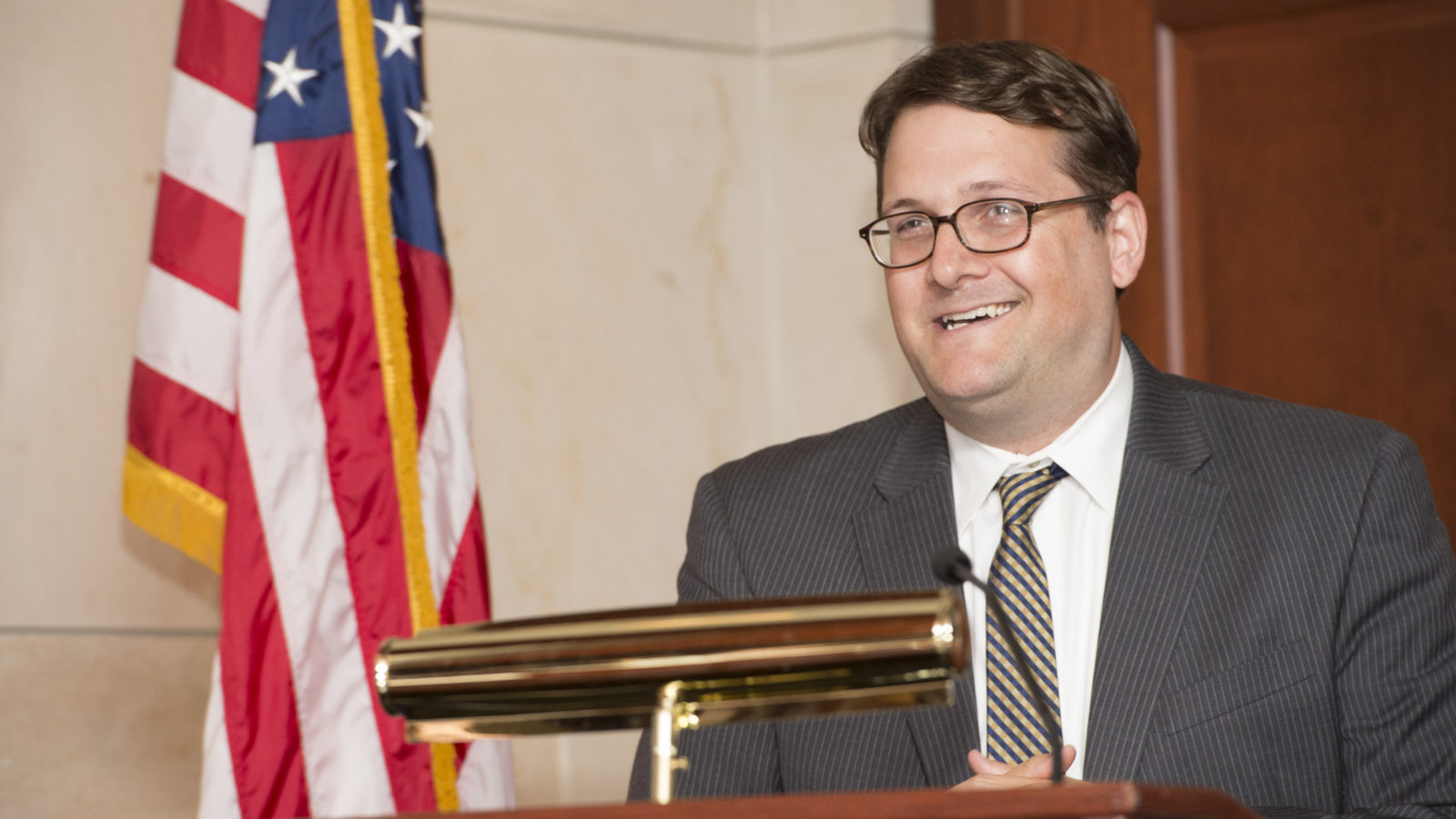
When TFAS students attend Professor Robert Raffety’s Economics of Regulation class, he will ask them where their clothes were made. When fellow students check their tags to find out if they guessed correctly, many are surprised at the number of countries found on the tags.
Raffety uses exercises like this to demonstrate “connectivity,” and the benefits of trade and exchange. Raffety wants his students to see that trade and exchange improve the lives of all parties involved. By trading with other countries, it’s possible to make clothes affordable. In an isolated society that must produce all the materials, clothes would be extremely expensive.
Raffety, associate director for policy research at the Mercatus Center at George Mason University and an adjunct professor at George Mason University, co-teaches the Economics of Regulation class with Matthew Mitchell, senior research fellow at the Mercatus Center at George Mason University.
“My favorite part of working with TFAS students is the diversity of their backgrounds, and the fact that not all of the students have been exposed to these ideas,” Raffety said. “It’s exciting to see students that have not been exposed to Austrian Economics or Public Choice Theory see those concepts for the first time and see their faces light up.”
During the class, the professors introduce students to free-market ideas through resources such as the short piece “I, Pencil: My Family Tree as Told to Leonard E. Read” and the works of French economist Frédéric Bastiat.
I’m grateful for the opportunity to be involved with TFAS. It has a great reputation, and the work that TFAS does is more valuable now than ever.”
Most importantly, Raffety, Mitchell and TFAS share a commitment to teaching students how, rather than what, to think. The course emphasizes working with students to use economics as a tool to understand the world in a different way, and as a lens to shape public policy.
“As a discipline, economics, and certainly market economics, can cause someone to think about the world in a completely different way than they had ever thought of before,” Raffety said.
Raffety began co-teaching the Economics of Regulation class at TFAS in 2013 when TFAS formed its strategic partnership with George Mason University. After Raffety welcomed TFAS to the George Mason campus, he joined the TFAS faculty to work with outstanding students during the summers.
“As an employee both at Mercatus and as an adjunct professor at GMU, this partnership was very exciting to me. I knew of TFAS at the time, and I had a great deal of respect for the organization and its mission,” Raffety said.
In his first year with TFAS, students, staff and supporters have been drawn to his enthusiasm. Recently he presented a sample lesson for supporters at the 47th Anniversary Annual Conference, impressing them with his ability to connect economic concepts with real life situations.
“I’m grateful for the opportunity to be involved with TFAS. It has a great reputation, and the work that TFAS does is more valuable now than ever.”

